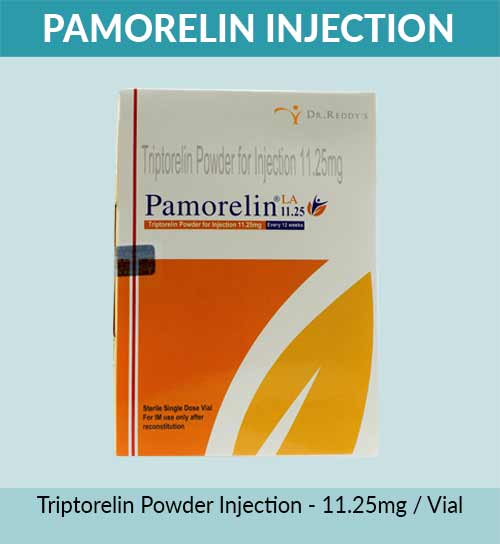Triptorelin
Triptorelin is a medication classified as a gonadotropin-releasing hormone (GnRH) agonist. It is primarily used in the treatment of certain hormone-related conditions, such as prostate cancer, breast cancer, endometriosis, and precocious puberty.
Triptorelin works by stimulating the release of gonadotropins, which are hormones responsible for regulating the production of sex hormones in the body. By initially increasing the levels of these hormones, triptorelin ultimately suppresses their production over time. This hormonal suppression can be beneficial in the treatment of hormone-dependent conditions, as it helps to control the growth of certain tumors or alleviate symptoms associated with hormonal imbalances.
The administration of triptorelin can vary depending on the specific condition being treated. It is available in various formulations, including injections and implants. The frequency and duration of treatment are determined by the healthcare provider based on the individual patient’s needs and response to the medication.
Like any medication, triptorelin can have side effects. Common side effects may include hot flashes, sweating, decreased libido, fatigue, and mood changes. In some cases, it may cause bone thinning or loss of bone density. Regular monitoring and follow-up with the healthcare provider are important to assess the effectiveness of the treatment and manage any potential side effects.
It is crucial to note that triptorelin should only be used under the supervision and prescription of a qualified healthcare professional. The appropriate dosage and duration of treatment should be determined by the healthcare provider based on the specific condition and the patient’s individual characteristics.
In summary, triptorelin is a medication used in the treatment of hormone-related conditions such as prostate cancer, breast cancer, endometriosis, and precocious puberty. By modulating hormone levels, it helps to control the growth of tumors or alleviate symptoms associated with hormonal imbalances. Regular monitoring and follow-up with a healthcare provider are essential during the course of treatment to ensure its effectiveness and manage any potential side effects.

